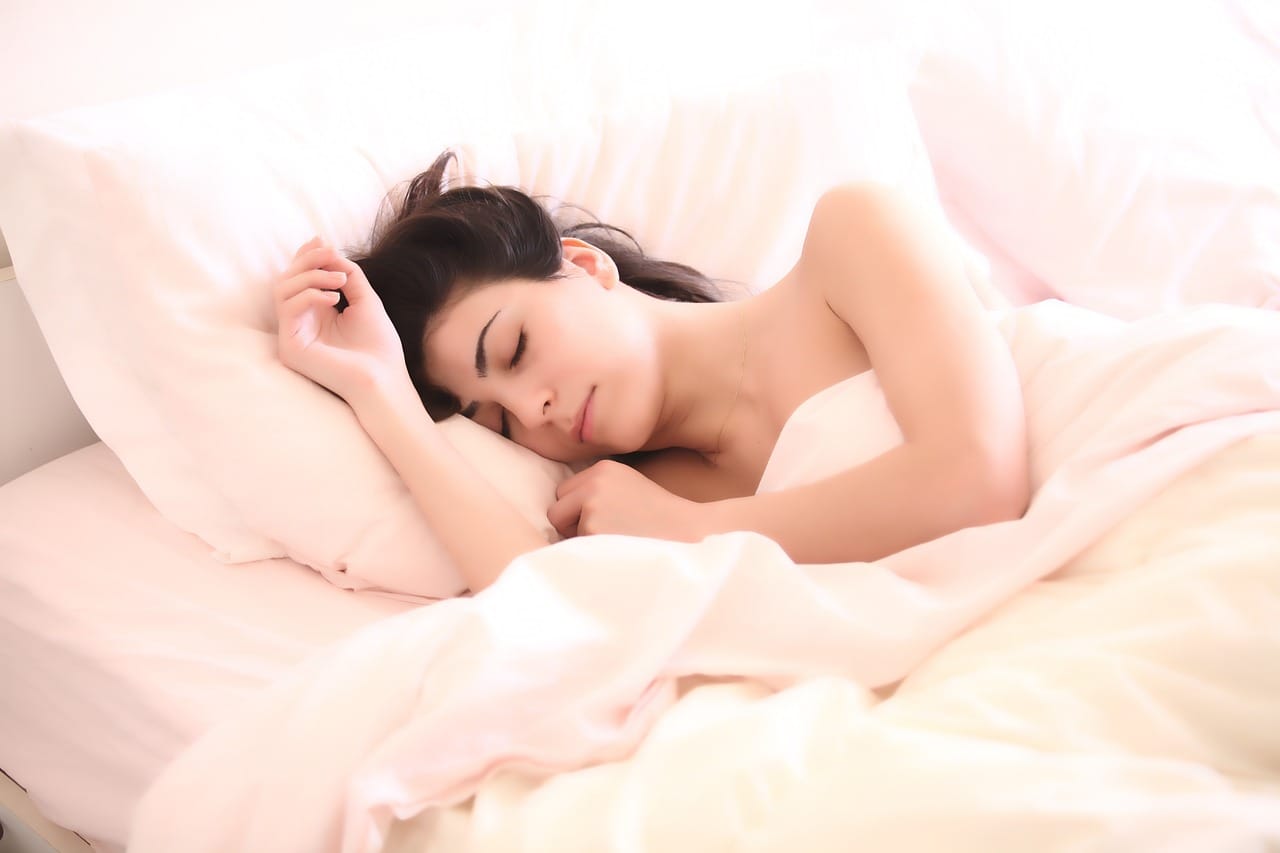The Sleep Secrets: Effective Tips for Health and Wellness Through Restful Nights
Are those restless nights stealing away your chance for deep, rejuvenating sleep? Do you often find yourself tossing and turning, longing for the embrace of peaceful slumber? Or do you wake up each morning, feeling as though you’ve barely closed your eyes, let alone rested? If that’s the case, understand that you’re not the only one facing this challenge. Across the globe, millions of individuals wrestle with similar sleep issues, from the initial challenge of drifting off to the frustration of frequent awakenings. But here’s the good news: you can always reclaim rest and sleep serenity like never before. In this article we shall uncover the secrets to profound sleep with practical tips, insightful guidance, and an appreciation for the vital role sleep plays in our lives.
Key Points
– Quality sleep is crucial for our body, mind, and emotions, affecting memory, learning, and emotional control.
– Moving through different sleep stages, like deep sleep and REM sleep, is essential for restorative sleep.
– Sleep disruptions like snoring or tossing-and-turning can harm overall health.
– Your sleep environment, including noise, light, and even alarm clock glow, impacts sleep quality.
– Stress, diet, and daily activity levels influence how well you sleep.
– Tools like white noise machines, soothing scents, and cutting-edge sleep gear like the Eight Sleep Pod Pro mattress can improve sleep quality.
– Prioritizing good sleep habits and making sleep a routine can enhance overall well-being and daily performance.
Understanding the Concept of Sleep
To truly unlock the secrets of inspiring sleep, let’s start by comprehending the fascinating concept of sleep itself. It’s not just about drifting off into a state of unawareness; sleep is a vibrant process that’s absolutely vital for our physical, mental, and emotional health. Think of it as our body’s ultimate power-up mode, where incredible things happen behind the scenes of the waking world.
When we drift into slumber, our bodies initiate a process of renewal. It’s like hitting the reset button, with our systems undergoing a series of intricate changes aimed at healing and rejuvenation. But it doesn’t stop there. Sleep also acts as a modulator for our brains, assisting us with securing memories, learn new things, and even deal with our feelings better. Yet, for many of us, achieving this restful state can feel like a battle, especially if we’re dealing with sleep disorders like the notorious sleep apnea. Thankfully, there’s hope on the horizon, with innovative therapies like Inspire sleep apnea therapy stepping in to offer relief and a chance for peaceful nights.
The Sleep Mechanism: The Vital Role of Restful Sleep
Let’s delve into the intricate mechanism governing sleep, akin to peeking under the hood of your body’s most complex machine. Sleep isn’t merely downtime; it’s when our body engages in serious maintenance, ensuring everything runs smoothly. As you catch those Z’s, your body is hard at work repairing tissues, building muscles, and releasing growth hormones vital for maintaining youthfulness and energy levels. Moreover, the brain is busy sorting through memories, processing emotions, and fine-tuning cognitive abilities.
A good night’s sleep also bolsters our immune system, fortifying us against illnesses and helping us feel our best. Without it, our defenses are compromised, leaving us susceptible to every passing bug. Furthermore, restful sleep isn’t solely beneficial for our bodies; our brains reap rewards too. During sleep, our brains meticulously organize the day’s memories, enhancing connections and sharpening cognitive skills. Without sufficient shut-eye, memory becomes fuzzy, focus diminishes, and even simple tasks become arduous.
The journey through sleep isn’t linear; it’s akin to a roller-coaster ride through various stages. There’s the initial drowsiness, followed by deep, restorative sleep akin to a warm embrace, and then the REM stage – a theater for vivid dreams and memory consolidation. Emotionally, sleep plays a pivotal role. The repercussions of sleep deprivation on mood are evident – irritability, mood swings, and heightened stress levels. Over time, it can even contribute to more serious mood disorders like depression and anxiety. Prioritizing sleep isn’t negotiable if you aim to maintain composure and peak performance. Your body and soul will undoubtedly will owe their gratitude for the change.
Challenges in Achieving Restful Sleep
Let’s now view the uphill battle many of us face when it comes to obtaining that elusive, rejuvenating sleep we all yearn for. Despite being fully aware of its importance, numerous obstacles hinder our path, ranging from lifestyle choices to bothersome underlying health conditions.
One of the most significant hurdles? Sleep disorders. They operate as clandestine thieves, stealthily pilfering our precious rest. Consider sleep apnea which is a serious sleep disorder leading to fragmented sleep and inadequate oxygen supply to the body which if left unattended can be a source of serious health hazards. Then it’s insomnia – it embodies the classic struggle of tossing and turning, unable to quiet our racing minds. Restless legs syndrome presents another challenge, thrusting us into a nocturnal dance-off with our own limbs. These disorders aren’t mere disruptors of sleep; they cast a shadow over our entire lives, leaving us fatigued and drained.
Moreover, environmental factors play a crucial role in obstructing restful sleep. Excessive noise, uncomfortable temperatures, and disruptive light patterns can all sabotage our efforts to attain deep, uninterrupted slumber. Similarly, erratic work schedules or demanding lifestyles may wreak havoc on our circadian rhythms, making it challenging to establish consistent sleep patterns.
Furthermore, psychological factors such as stress, anxiety, and depression can significantly impact our ability to achieve restorative sleep. Racing thoughts, persistent worries, and emotional turmoil often accompany these conditions, creating a barrier between us and the restful sleep we desperately need. Additionally, lifestyle choices, including irregular exercise routines, poor dietary habits, and excessive caffeine or alcohol consumption, can exacerbate sleep difficulties. These habits disrupt our body’s natural sleep-wake cycle, making it harder to unwind and drift off into restorative slumber.
Addressing these challenges requires a multifaceted approach that encompasses lifestyle modifications, environmental adjustments, and, in some cases, medical intervention. By identifying and addressing the underlying factors contributing to sleep disturbances, we can pave the way for more restful nights and rejuvenated days ahead.
Understanding Sleep Apnea
Now, coming to the real heavyweight in the world of sleep disorders – sleep apnea. It’s not just a snorer’s annoyance; it’s a serious condition that can wreak havoc on our health. Picture this: you’re peacefully drifting off when suddenly, bam! Your breathing hits the pause button, over and over again throughout the night, leaving you gasping for air and your body starved of oxygen.
Obstructive sleep apnea (OSA) takes center stage here, with throat muscles deciding to take a break and block your airway. Cue the snorts, chokes, and gasps as you struggle to breathe. Then there’s central sleep apnea (CSA), where your brain forgets to send the memo to your breathing muscles – talk about a communication breakdown!
Advancements in Sleep Apnea Therapy
But fear not, say hello to Inspire sleep apnea therapy – the superhero of treatments for obstructive sleep apnea. This game-changer involves a nifty little device implanted near your throat, gently nudging a nerve to keep that airway wide open while you catch those Z’s. It’s like having a personal bodyguard for your sleep, without the hassle of bulky CPAP machines.
And the best part? As technology marches on, so does the landscape of sleep apnea therapy. With each new breakthrough, there’s fresh hope and relief for those battling this relentless sleep thief. So, if you’ve been wrestling with sleep apnea, know that you’re not alone – and that there’s a world of solutions out there, just waiting to help you reclaim your rest.
Effects of Sleep Deprivation
Let’s delve into the aftermath of those sleepless nights – it’s not just about feeling a bit bleary-eyed the next day. Nope, chronic sleep deprivation can wreak havoc on both our bodies and minds, casting a shadow over every aspect of our lives. Mentally, it’s akin to our brain operating on minimal reserves after a restless night. Our ability to remember suffers, focus becomes elusive, and making decisions feels sluggish. It’s more than just a slight decrease in speed – it’s a genuine hazard, as reduced alertness leaves us vulnerable to accidents and errors, whether we’re working, driving, or simply managing daily activities.
On an emotional level, it’s a tumultuous journey marked by stress, anxiety, and irritability. Have you ever observed how even small problems appear magnified after a night of poor sleep? That’s because sleep deprivation heightens our emotional sensitivity, making us feel tense and prone to overreacting. As time progresses, it’s not only our mood that deteriorates – it can also set the stage for more severe mental health conditions such as depression and anxiety.
From a physical standpoint, the consequences of sleep deprivation are profound. It’s akin to unleashing a cascade of health issues, ranging from compromised immunity to an increased susceptibility to chronic conditions. Our bodies become susceptible, our defenses weakened, and our internal balance disrupted. And it’s not solely major ailments like heart disease and diabetes – even our metabolism is impacted, making weight management more challenging.
The Link Between Sleep and Chronic Conditions
It’s more than just feeling a bit off – there’s a direct correlation between insufficient sleep and the development of severe health concerns. Consider conditions like heart disease and diabetes – skimping on sleep can significantly contribute to their onset. Take heart disease, for instance; sleep deprivation disrupts our cardiovascular system, triggering heightened blood pressure, inflammation, and irregular heart rhythms, all amplifying the risk of serious cardiac issues in the future.
Then there’s diabetes, where inadequate sleep disturbs our body’s ability to manage blood sugar levels effectively. It sets the stage for trouble, with insulin resistance and erratic glucose levels paving the way for type 2 diabetes. The silver lining? By prioritizing sleep and adopting healthy sleep practices, we can mitigate the impact on these chronic ailments. It’s not merely about feeling more refreshed – it’s about safeguarding our long-term health and well-being.
Strategies to Inspire Deep Restful Sleep
Achieving restful and rejuvenating sleep is essential for overall health and well-being. By prioritizing sleep hygiene and implementing effective strategies, individuals can create an environment conducive to sound sleep. Here, we explore comprehensive strategies to inspire sleep and make rest easily achievable.
Prioritizing Sleep Hygiene
Establishing healthy sleep habits forms the foundation for restful sleep. By incorporating consistent practices and routines, individuals can optimize their sleep hygiene for improved sleep quality and duration.
Creating a Conducive Sleep Environment
The sleep environment significantly influences sleep quality. Optimizing the bedroom environment is essential for promoting relaxation and facilitating deep sleep. Key considerations include selecting suitable bedding, controlling temperature and lighting, minimizing noise disturbances, and utilizing tools like sleep calculators to determine optimal bedtime.
Choosing the Right Mattress and Bedding
Invest in a quality mattress and bedding that provide adequate support and comfort for a restful sleep experience. Eight Sleep is a company specializing in innovative sleep technology aimed at optimizing sleep quality and overall well-being. Their flagship product, the Pod Pro mattress, incorporates advanced features such as thermal regulation, sleep tracking, and personalized temperature control to create an optimal sleep environment. The Pod Pro utilizes water-based technology to adjust mattress temperature throughout the night, ensuring comfort and promoting deeper sleep stages. Additionally, it integrates sleep tracking sensors to monitor sleep patterns and provide insights into sleep quality, duration, and disturbances.
Controlling Temperature and Lighting
Maintain a cool and dark bedroom environment to enhance sleep quality and promote relaxation.
Minimizing Noise Disturbances
Reduce noise levels in the bedroom to create a peaceful sleep environment conducive to restful sleep.
Utilizing Sleep Calculators
Use sleep calculators to determine the optimal bedtime based on individual sleep needs, ensuring sufficient rest and rejuvenation.
Managing Stress and Anxiety
Stress and anxiety can disrupt sleep patterns, making it challenging to unwind and fall asleep. Implementing relaxation techniques and mindfulness practices before bedtime can effectively manage stress and promote a sense of calmness conducive to sleep.
Incorporating Relaxation Techniques
Practice deep breathing exercises, progressive muscle relaxation, and mindfulness meditation to alleviate stress and induce a state of relaxation conducive to sleep.
Establishing a Bedtime Routine
Develop a consistent bedtime routine to signal to the body that it’s time to wind down and prepare for sleep, promoting relaxation and sleep onset.
Supporting Overall Sleep Health and Hygiene
Let’s talk about nurturing your sleep – because it’s not just about hitting the hay; it’s about creating a haven where your body and soul can truly rest. Here’s how you can turn your bedroom into a sanctuary and wake up feeling like you’re ready to conquer the day, one cozy night at a time.
Establishing a Consistent Sleep Schedule
Picture your body as a finely-tuned instrument, and consistency is the melody that keeps it in harmony. Set a regular sleep schedule by tucking in and rising at the same time each day. This helps your internal clock find its rhythm and tells your body when it’s time to wind down and recharge.
Incorporating Regular Exercise
Exercise isn’t just about getting your sweat on – it’s about giving your body the love and attention it deserves. Whether you’re dancing in your living room or hitting the trails for a hike, find activities that light you up and make you feel alive. Not only does exercise help ease stress, but it also tires out your body in the best way possible, making it easier to drift off into dreamland when bedtime rolls around.
Adopting Healthy Eating Habits
You know the saying, “You are what you eat”? Well, when it comes to sleep, it couldn’t be more true. Skip the heavy meals before bedtime and opt for lighter, nourishing snacks that won’t weigh you down. Load up on fruits, veggies, whole grains, and lean proteins throughout the day, steering clear of caffeine and sugary treats in the evening. Your body will thank you for the fuel it needs to power through the night and wake up feeling refreshed.
Seeking Professional Help
Sometimes, despite our best efforts, sleep still remains out of reach. That’s acceptable—after all, we’re just human. If you find yourself tossing and turning night after night, don’t be afraid to reach out to a healthcare professional. They’re here to help identify any underlying issues, whether it’s insomnia, sleep apnea, or something else entirely, and work with you to find a solution that works for you.
Useful Sleep Aids
In addition to adopting healthy sleep habits, there are some nifty tools you can use to enhance your sleep experience:
White noise machines
Block out the world and create your own little oasis of calm with a soothing sound that lulls you into dreamland.
Aromatherapy
Treat your senses to a little slice of heaven with scents like lavender, chamomile, and valerian root, known for their calming properties. Spritz a little on your pillow or diffuse it in your room for an extra dose of relaxation.
Weighted blankets
Wrap yourself in a hug with a weighted blanket that provides gentle pressure, easing anxiety and helping you drift off into a blissful slumber.
Melatonin supplements
When all else fails, a little boost from Mother Nature can work wonders. Melatonin supplements can help regulate your sleep-wake cycle, making it easier to fall asleep and stay asleep, especially if you’re dealing with jet lag or insomnia.
Sleep Masks and Blackout Curtains
Turn your bedroom into a cozy cocoon that’s perfect for catching some Z’s. Block out any stray rays of light with a sleep mask or invest in blackout curtains to ensure your room stays dark and peaceful throughout the night.
Eight Sleep Technology
Beyond the mattress as discussed above, Eight Sleep offers a range of sleep accessories and complementary products designed to enhance the sleep experience further.
Conclusion
Inspiring sleep isn’t just about fluffing up your pillows or splurging on fancy gadgets. It’s about diving deep into the intricate dance of factors that shape our sleep, and then rolling up your sleeves and making it happen. It’s about crafting a bedtime routine and environment that whispers, “Relax, it’s time to rest.” Remember, sleep is a precious gift – cherish it, and you’ll wake up feeling like a million bucks every single day. So go ahead, dive in headfirst. Embrace the journey towards better sleep, one cozy night at a time. Your body and spirit will owe their gratitude to you.
Additional Sources
- National Sleep Foundation – https://www.sleepfoundation.org/
- American Academy of Sleep Medicine – https://aasm.org/
- Sleep Health Journal – https://www.journals.elsevier.com/sleep-health
Image Facilitation: pixabay.com





